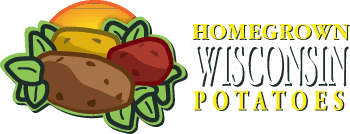No question we’ve all been hearing a lot about the importance of knowing where you’re food is coming from. And there have been many discussions, conferences, international meetings, and even statewide initiatives talking about food traceability. It’s a hot topic and it should be. After all, food travels many miles, sometimes even thousands of miles, before it lands on your plate.
Why is food traceability so important? Well, for starters, it’s essential for governments and industries to be able to trace food back to its origins in the case of a recall or some sort of food epidemic. But also, there are personal issues for many families who might want to eat organic, or vegetarian, vegan, gluten or have some religious observances that prohibit consuming certain types of food.
It sounds simple but it’s not. Food chain traceability is complex, it involves international affairs, government and politics, technology and cooperation. For Americans, 15% of our food comes from foreign countries, but in some food categories like seafood, the amount is 80%. In short, our minds need to understand what we put in our mouths.
We were surprised to learn that the International Organization for Standardization (ISO), which so many of you have heard of – we usually see ISO Certifications in the manufacturing sector – actually has 1,000 different standards for food including standards for agricultural machinery, logistics, transportation, manufacturing, labeling, packaging and storage. But there are many other organizations involved, too.
Global Standards One (GS1) for instance, is an organization represented in 100 different countries that controls bar codes (Uniform Product Codes) and many other types of technology that can assist us with food traceability. And many other organizations are involved, too, which shows how important an issue this is. The Food and Drug Administration (FDA) has been involved through an initiative called the Food Safety Modernization Act (FSMA), which helps to ensure that our food supply is safe.
Traceback of food is an evolving issue and we’ll do our very best to update you as technologies, legislation and new developments occur. In the meantime, it’s always a good idea to read labels and do some research. Happy spring to all of our followers.

